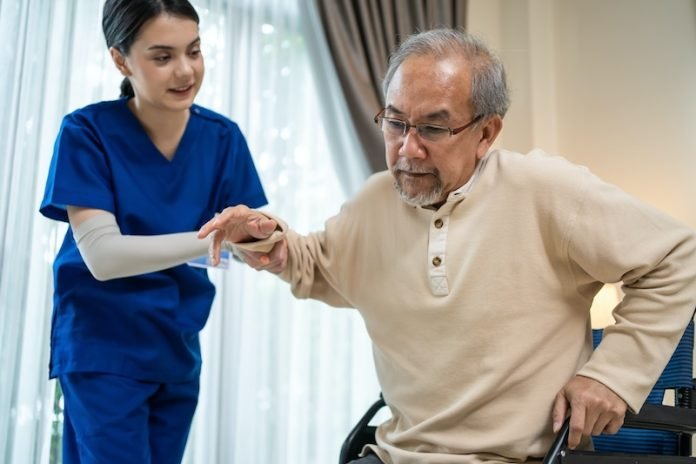
Living with advanced Parkinson’s disease can be incredibly challenging, especially when it seems like the current treatments are no longer effective.
But a new study from the Technical University of Munich offers hope, suggesting that even at later stages, patients might still have options.
The Challenge of Advanced Parkinson’s
Parkinson’s is notorious for its progressive nature, leading to a decline in motor functions and other symptoms that can severely affect a person’s quality of life.
When initial treatments like medication stop working, doctors often turn to more invasive options like deep brain stimulation or drug infusion pumps.
However, there comes a point when these too may stop giving the relief they once did, leaving patients and doctors feeling like they’re at a dead end.
New Findings Offer Hope
Researchers led by Prof. Paul Lingor decided to look into the data from 22 Parkinson’s centers across Germany.
They focused on patients who had moved on from one invasive treatment to another or combined treatments.
Surprisingly, they found that such changes could still significantly improve the patients’ mobility and overall well-being.
Out of about 11,000 patients, 116 had switched up their treatment plans. The team studied 148 instances of these changes and found positive outcomes.
These findings are exciting because they challenge the idea that there are no options left for patients when a treatment fails.
The Benefits of Change
The study revealed that patients who changed treatments experienced improvements almost on par with when they first started treatment.
This means that even in advanced stages, there’s a chance for better quality of life. It’s a game-changer for patients who thought they had exhausted their options.
What This Means for Patients
This research could transform how we deal with advanced Parkinson’s. It shows that if a treatment isn’t working, there’s merit in considering a switch or combination of different therapies.
And these decisions can be tailored based on the specific symptoms a patient is struggling with the most.
The success of this study has paved the way for the creation of a national registry in Germany. This would collect data from all Parkinson’s patients receiving device-based treatments.
The goal is to develop solid guidelines for combining treatments based on real-world evidence, making it easier for doctors to offer the best possible care.
For those living with advanced Parkinson’s, this study is a beacon of hope. It suggests that even when things seem bleak, there may be unexplored avenues that could lead to significant improvements.
It’s a reminder that with persistent research and innovative thinking, we can continue to find new ways to enhance the lives of those with chronic conditions.
If you care about Parkinson’s disease, please read studies about Exercise hormone may help stop Parkinson’s symptoms and findings of Scientists make new breakthrough in Parkinson’s disease treatment.
For more information about Parkinson’s disease, please see recent studies about Keto diet as a potential aid for Parkinson’s disease and results showing that Flavonoids in diet may lower death risk in Parkinson’s disease.
The research findings can be found in Neurology.
Follow us on Twitter for more articles about this topic.
Copyright © 2023 Knowridge Science Report. All rights reserved.



